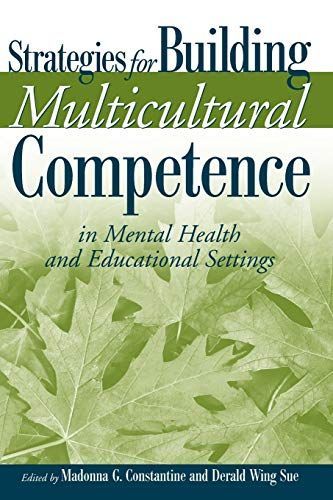
Strategies for Building Multicultural Competence in Mental Health and Educational Settings
"A must-read book for all mental health professionals wanting tokeep up with today's most important clients...practical, concrete,hands-on details from firsthand experts on ethnicpopulations." --Richard Suinn, PhD, Colorado State University, Past president(1999), American Psychological Association The rich mosaic of racial and ethnic diversity defines our societynow more than ever. For students and professional psychologists,this translates into a critical need to address a range of culturaldiversity issues, as well as potential biases. Recently, the American Psychological Association (APA) recognizedthe importance of cultural competence for psychologists through itsadoption of its Multicultural Guidelines. Applying those guidelinesto real-world practice is both complex and challenging. Only onetext brings it all into sharp focus: Strategies for BuildingMulticultural Competence in Mental Health and EducationalSettings. Edited and written by renowned multicultural experts, thisinformative guide is full of concrete strategies and case examples,all geared toward achieving the goal of culturally competentpractice. Chapter by chapter, it uses a variety of practicemodalities in various settings to help all mental healthprofessionals increase their familiarity and compliance with theAPA Multicultural Guidelines. Beginning with a useful summary of the APA guidelines, Strategiesfor Building Multicultural Competence in Mental Health andEducational Settings covers the guidelines' relevance to: * Individual and group counseling * Couples and family counseling * Career counseling with people of color * Independent practice settings * Multicultural consultations and organizational change * Academic mental health training settings * Clinical and hospital settings * College counseling center settings * Elementary and secondary school settings This timely reference also considers building multiculturalcompetence around indigenous healing practices; in clinicalsupervision contexts; and in culturally sensitive research. Takentogether, the book is a much-needed blueprint for making culturallyinformed decisions, explaining how the multicultural initiativesyou implement today can he'p shape the field's future.